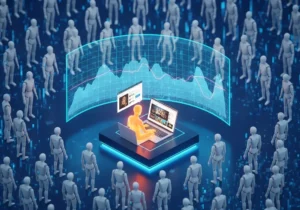
Introduction
Personalized learning platforms for K–12 are transforming the educational landscape by offering students tailored learning experiences that meet their unique needs, pace, and interests. These digital tools are no longer optional but essential in today’s learning environment, especially in a world where traditional education often struggles to accommodate the diversity of learners.
Educators and institutions are turning to personalized learning platforms as a strategic way to boost academic performance, enhance student engagement, and support holistic development. With the rise of technology and data-driven teaching methods, these platforms are playing a critical role in redefining success in classrooms across the globe.
Understanding Personalized Learning in K–12
At its core, personalized learning platforms provide an adaptive learning journey for each student. Unlike the one-size-fits-all model of the past, these platforms use real-time data to assess student progress, identify strengths and weaknesses, and deliver customized content.
These tools help teachers adjust instruction based on individual learning styles. Whether a student excels in visual learning or needs more time for reading comprehension, personalized learning platforms for K–12 adapt accordingly. This individualization not only maximizes student potential but also encourages self-motivated learning.
Increased Engagement and Motivation
One of the biggest advantages of personalized learning platforms for K–12 is their ability to increase student engagement. When students interact with content that resonates with them and aligns with their interests or goals, they are naturally more motivated.
Gamified learning, interactive modules, and instant feedback are all features embedded in personalized learning platforms for K–12 that help maintain interest and build academic confidence. When learners feel in control of their learning journey, their commitment and performance levels rise.
Addressing Diverse Learning Needs
Every student is different, some thrive in fast-paced environments while others require a bit more time. Personalized learning platforms for K–12 recognize these differences and offer flexible paths for mastery.
These platforms also play an essential role in supporting students with learning difficulties or those who are ahead of the curve. With content that scales to individual progress, personalized learning platforms for K–12 create an inclusive environment where no student is left behind or held back.
Boosting Academic Performance
Numerous studies have shown that personalized learning platforms for K–12 can significantly improve academic outcomes. With real-time analytics, teachers can track performance and make data-informed decisions to help students meet learning targets.
The adaptive assessments provided by these platforms ensure that gaps in understanding are identified early. Teachers can then intervene promptly, ensuring continuous learning. This proactive approach reduces the risk of students falling behind and leads to higher test scores and better overall academic performance.
Empowering Teachers with Smart Tools
While student outcomes are at the forefront, personalized learning platforms also empower educators. These platforms simplify lesson planning, track student metrics automatically, and offer content suggestions tailored to each class.
With less time spent on administrative work, teachers can focus more on coaching, mentoring, and providing emotional support. The platforms serve as intelligent assistants that help educators be more effective without feeling overwhelmed.
Enhancing Communication and Collaboration
In addition to classroom learning, personalized learning platforms for K–12 often include built-in communication tools that facilitate collaboration among students, teachers, and parents. These features create a cohesive learning ecosystem where everyone is aligned with the student’s progress and goals.
Weekly reports, personalized messages, and parent dashboards are common in many personalized learning platforms , helping families stay involved in their child’s education and support learning at home.
Supporting Emotional and Mental Health
Today’s students are facing unprecedented stressors, from academic pressure to social challenges. Personalized learning platforms can play a supporting role by offering students more control over their pace, reducing anxiety related to performance.
Additionally, when integrated with school systems, these platforms can help educators identify signs of emotional distress through patterns in behavior and performance. As a result, schools can intervene early and connect students with mental health resources when needed, contributing to both academic success and emotional well-being.
Real-Time Feedback and Self-Reflection
Unlike traditional tests and grading systems, personalized learning platforms provide instant feedback. This allows students to understand their mistakes, learn from them immediately, and build resilience.
Self-assessment tools included in many personalized learning platforms also foster a culture of self-reflection. Students are not only consumers of content but active participants in their learning journey, which strengthens problem-solving skills and critical thinking.
Preparing Students for Lifelong Learning
The world is evolving rapidly, and so are the skills required to thrive. Personalized learning platforms help develop critical 21st-century skills such as digital literacy, adaptability, and independent learning.
By promoting curiosity and self-directed education from an early age, these platforms prepare students not just for academic exams, but for lifelong success in a knowledge-driven world.
Challenges and Considerations

Despite their many benefits, personalized learning platforms come with challenges. Not all schools have equal access to technology. Teacher training and system implementation also require time and resources.
However, with proper planning and support, the transition to personalized learning platforms can be smooth and effective. The key is ongoing collaboration between stakeholders educators, IT teams, parents, and policymakers.
Conclusion
Personalized learning platforms for K–12 are more than just a trend; they are the blueprint for a more inclusive, effective, and empowering education system. By tailoring content to individual needs, fostering student engagement, supporting mental and emotional well-being, and providing teachers with powerful tools, these platforms are helping students achieve their full potential.
As schools continue to embrace digital transformation, investing in personalized learning platforms for K–12 is not just beneficial it’s essential for long-term educational success.

I’m Ethan Richards, the guy running the show at “Acknowledgment Templates.” I’ve been playing with expressions and formats to make acknowledgment writing a whole lot of fun. Over at Acknowledgment Templates, we’re here to make your acknowledgment section incredible. Let’s add some professionalism and gratitude to your project together!












